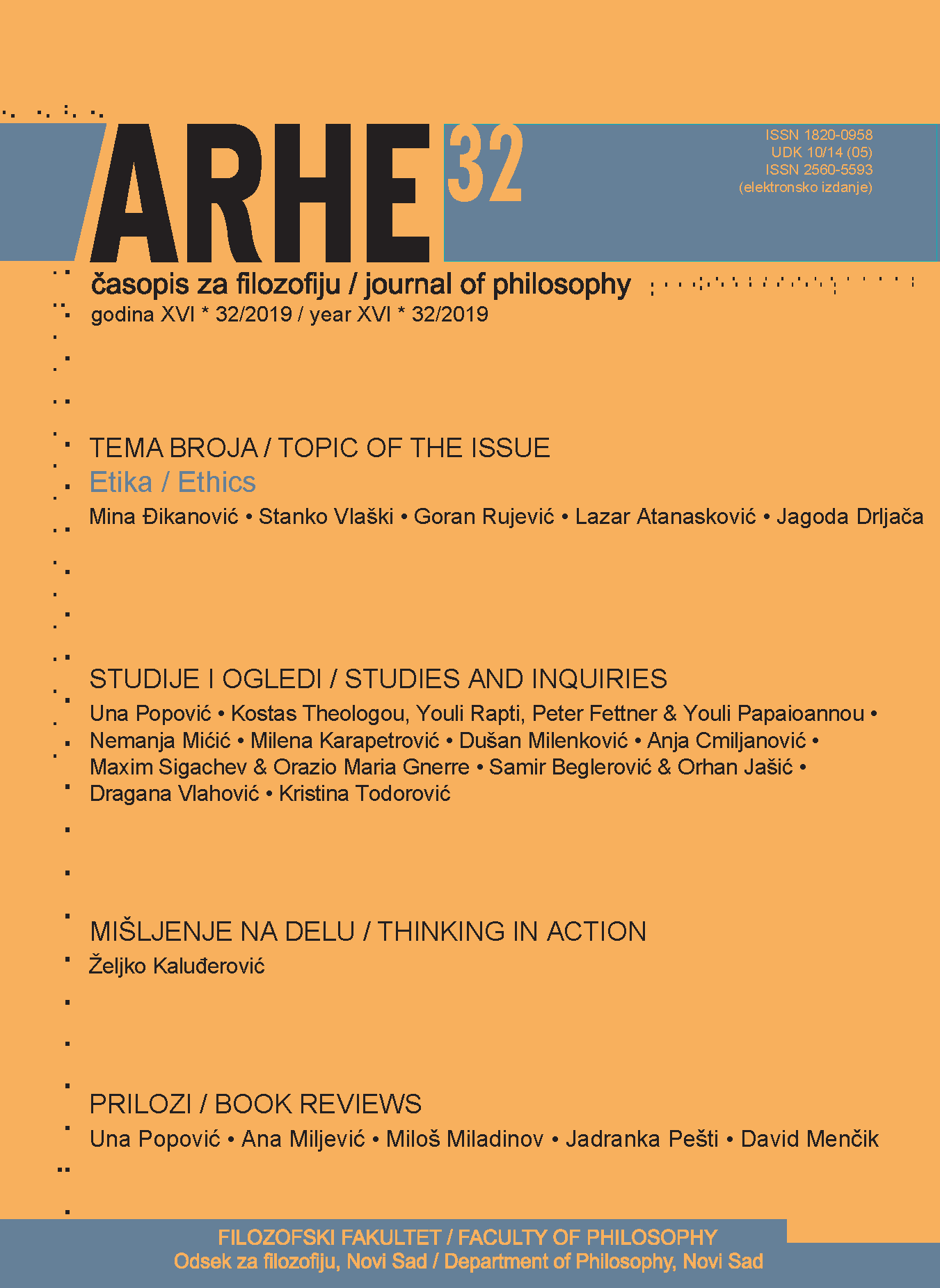CONCEPTIONS OF MORAL PHENOMENON IN KANT’S AND HEGEL’S PHILOSOPHIES
Main Article Content
Abstract
Kant’s philosophy is discontinuous with traditional systems which postulate good as a purpose of moral conduction. He sets the new concept of morality, which is cleaned of every heteronomous purpose and focused on an idea of universalization of maxims. Pursuing for pure principle of morality and finding it in moral law, Kant gave the incomparable dignity to human subjectivity, but also condemned it to impracticability that peaks in strive for perfection. Hegel adopts high achievement of Kantian position on the infinite right of subjectivity, but makes it practicable through concept of ethical life. The author tends to show the ultimate range of Kant’s concept of morality and possibility for overcoming its boundaries with Hegelian intervention.
Article Details
References
Bielefeldt, H., Symbolic Representation in Kant's Practical Philosophy, Cambridge University Press.
Hegel, G. W. F., Fenomenologija duha, Ljevak, Zagreb 2000.
Hegel, G. W. F., Osnovne crte filozofije prava, Veselin Masleša-Svjetlost, Sarajevo 1989.,
Hume, D., An Enquiry Concerning Human Understanding, University of Adelaide 2014.
Kant, I., Metafizika morala, IKZS, Novi Sad 1993.
Kant, I., Pravno-politički spisi, Politička kultura, Zagreb 2000.
Kant, I., Kritika čistog uma, Dereta, Beograd 2003.
Kant, I., Kritika praktičkog uma, Naprijed, Zagreb 1974.
Kant, I., Zasnivanje metafizike morala, Dereta, Beograd 2004.
Nancy, Finite thinking, Stanford University Press, California 2003.
Perović, M. A, Etika, INED CO „Media“, Novi Sad 2001.
Perović, M. A, Filozofija morala, Cenzura, Novi Sad 2013.
Perović, M. A., Hegel i problem savjesti, Bratstvo-Jedinstvo, Novi Sad 1989.
Perović, M. A., Pet studija o Hegelu, Filozofski fakultet, Novi Sad 2004.
